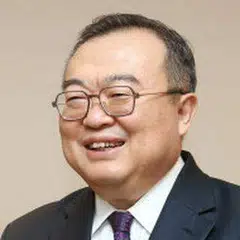Chinese Minister Liu Jianchao: Asia's choice matters
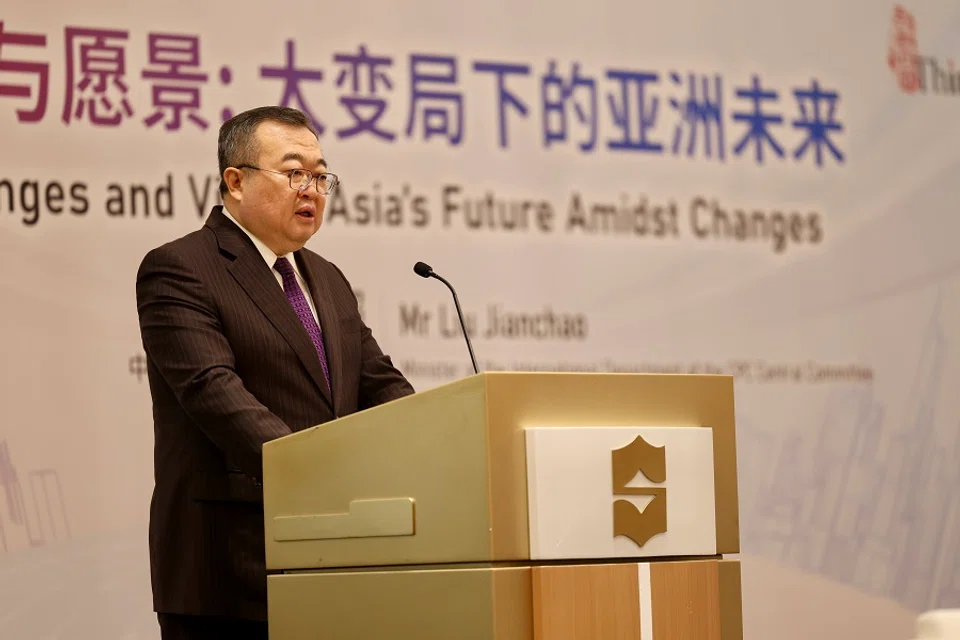
Minister for Transport and Second Minister for Finance Chee Hong Tat, Senior Minister of State for Sustainability and the Environment and Manpower Koh Poh Koon, chairman of Business China and board director of SPH Media Lee Yi Shyan, chief executive officer of Business China Ho Chee Hin, editor-in-chief of SPH Media's Chinese Media Group Lee Huay Leng my old friend, dear colleagues. A very good morning to you and it's a great pleasure to be with you at this event.
I would like to start by thanking the organisers for your efforts in promoting China-Singapore exchanges and cooperation over many decades. Business China, initiated by Mr Lee Kuan Yew, aims to develop a cultural and economic bridge linking Singapore and China. Lianhe Zaobao is a world renowned Chinese-language newspaper which has a lot of influence both in the world and also in China itself. FutureChina and ThinkChina are committed to introducing China to other countries in the world. And I thank you very much indeed for the great job that you've done over these years. Every time I'm in Singapore, it is gratifying to see that the success story of Singapore goes on and on.
Singapore's success is attributed to people's trust, diligence, frugality and eagerness to learn, as put by Mr Lee Kuan Yew. Singaporeans believe that if people only rely on heaven, their rice jars would be empty. But if people work hard, their granary would be full of grain. In such a spirit, Singaporeans have succeeded in building the country into a leading global financial, shipping and refinery centre within just a few decades. Your experience is still enlightening for a good number of countries in the world today.
With nearly 60% of the world's population, 40% of the world's economic aggregate and over 30% of international trade, Asia's choice matters.
Readjustments in relationships among major countries
Colleagues, the world today is fraught with transformations and turbulence. Relations between major countries are undergoing profound readjustments. Geopolitical conflicts in one place spill over into other parts of the world. With nearly 60% of the world's population, 40% of the world's economic aggregate and over 30% of international trade, Asia's choice matters.
So what do we Asia people need and what should we guard against? I would like to share with you the following thoughts.

First, we need peace, not war. Since World War Two, over 90 wars of various scales have broken out across the world. However, Asia has remained largely peaceful and stable. Countries in the region have been mostly at peace with each other, which has helped nurture Asia's development miracles over the past decades.
The experience we learn is that to realise prosperity in the long run, we must guard against conflicts and wars.
Yet today, the tendencies of military blocs finding their ways into the Asia-Pacific are sounding the alarms for us.
The South China Sea issue, to be honest, is being played up by some external countries for certain purposes.
Guarding against bloc confrontations
Prime Minister Lee Hsien Loong has also reminded us in his speech that our region has enjoyed peace for so long, but anyone who thinks that war cannot break out in the region needs to get real. At present, Asia is at a critical juncture of development and rejuvenation. We must make sure that geopolitical conflicts and bloc confrontations which might lead to turbulence and crisis do not occur in our region.
The South China Sea issue, to be honest, is being played up by some external countries for certain purposes. Thanks to the concerted efforts of China and ASEAN over the years, there has been overall stability in the South China Sea. We have already signed the DOC (Declaration on the Conduct of the Parties in the South China Sea) and are working on the COC (Code of Conduct in the South China Sea). Let us stay as sober-minded and vigilant as ever to keep the initiative of maintaining the peace and stability of the region in our own hands.
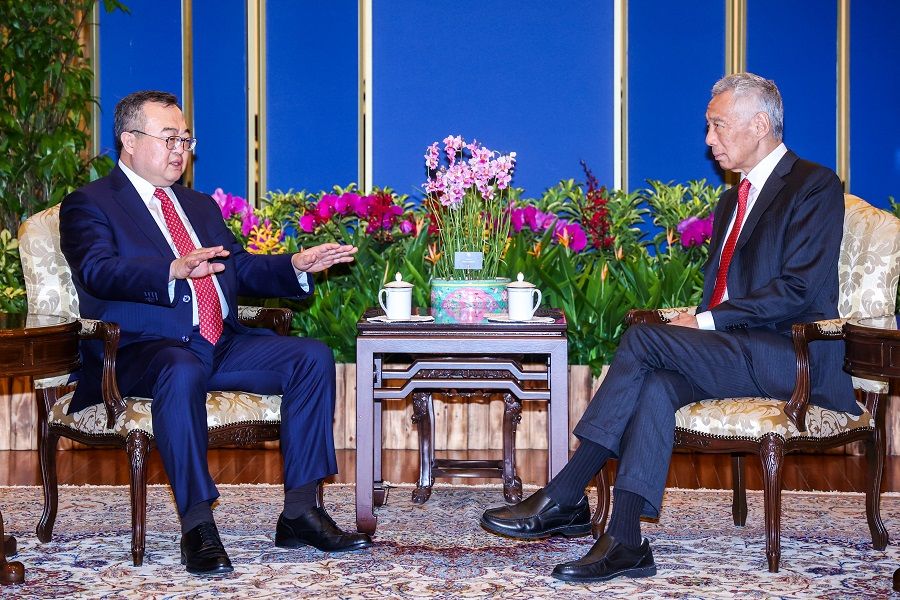
On the issue of peace and security, China has the best track record among all major countries. China has never provoked a war or invaded another country. China's defence budget in 2023 accounted for less than 1.5% of its GDP, not only much lower than that of the US which is 3.2%, but also below the global average of 2.4%.
We appreciate Singapore's opposition to the Cold War mentality and Singapore's proposal that major country competition and regional disputes should be properly managed. China is ready to continue working with Singapore and other countries in our region to defend peace and stability in Asia as they are the foundation for growth and prosperity.
Asia must be vigilant not to become a testing ground for "parallel systems".
No to decoupling
Second, we need connectivity, not decoupling. Be it the miracle of the four dragons or four tigers in the 1980s and 1990s, the rapid growth of China or the rising prosperity of ASEAN countries as a whole, the secret behind these success stories is their embrace of economic globalisation and regional integration.
Facts have proven that economic globalisation and regional integration unleashes dynamism, potential and resilience for growth. However, for some time, the trend of economic globalisation has encountered headwinds. Certain countries are engaged in decoupling, disrupting supply chains, building "small yards with high fences" in the name of security. Asia must be vigilant not to become a testing ground for "parallel systems". If so, the long-established industrial and supply chains in the region could be disrupted, and Asia can only find it harder to achieve prosperity given the mounting difficulties in economic and social development at the moment.
China has all along been a practitioner, beneficiary and champion of economic globalisation and regional integration. We understand that China's prosperity hinges on the development of the region.
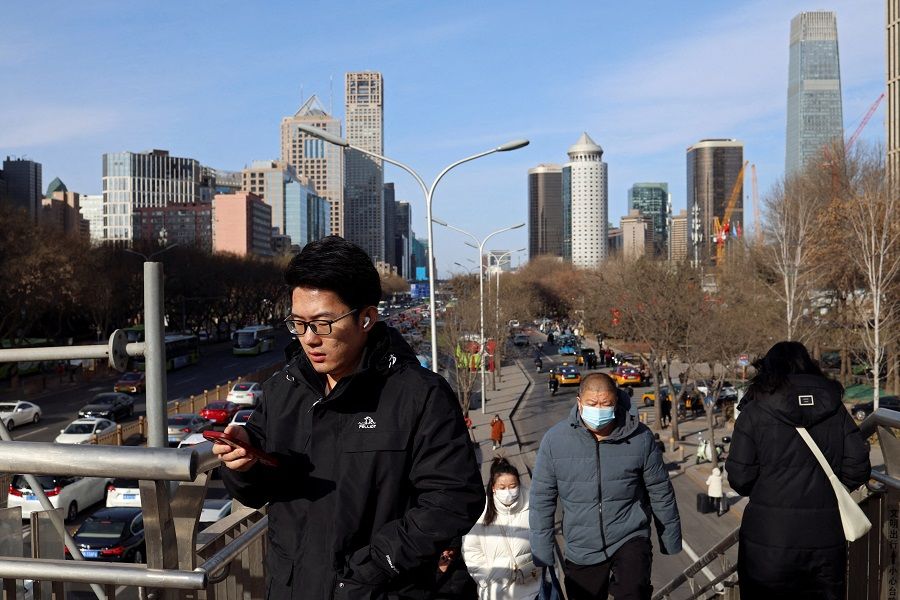
That is why we were determined to shore up the RMB during the Asian financial crisis, why we proposed the Belt and Road Initiative, initiated the establishment of the Asia Infrastructure Investment Bank (AIIB) and joined the RCEP (Regional Comprehensive Economic Partnership) and that is why we provided anti-pandemic supplies to countries in our region and endeavoured to promote post-pandemic recovery in this part of the world. The Chinese economy is deeply integrated into the world economy and we will open our door wider.
... we need technology as a means to empower not to undermine.
We appreciate Singapore's open mindset and dedication to economic integration in the region. China is ready to join hands with Singapore and other countries in the region in opposing protectionism, supporting global globalisation, enhancing regional connectivity and boosting regional economic circulation.
High-quality development driven by high technology and innovation
Third, we need technology as a means to empower not to undermine. As the new round of technological revolution and industrial transformation keeps evolving, Asian countries must work together to pursue high quality development driven by high tech and innovation and not miss the opportunity brought by technological empowerment.
Regrettably, a certain country is tightening the net of technology blockade. Such practice will only hinder technological advancement, harm industries, and widen development gaps. The fruits of technological advances should benefit humanity as a whole rather than being used as a means to contain or undercut other countries.
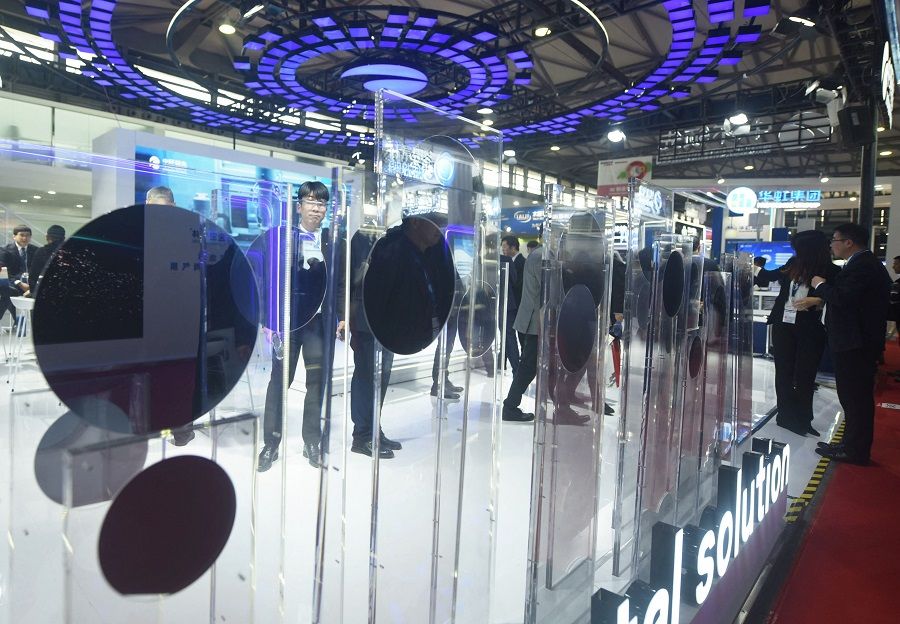
China highly values its cooperation with Singapore in areas of digitalisation, green development, artificial intelligence and the exemplary role of such cooperation in the region. We stand ready to work with Singapore and other Asian countries to enhance cooperation in high tech and innovation with an open mindset. We should grasp new opportunities brought about by technological revolution and keep our region a front runner in the world economy.
China's economy not peaked yet
Talking about the economy, I want to borrow this opportunity to brief you on some of the basic facts of the Chinese economy as there has been a growing concern that China's growth has peaked or will face recession in the future. When assessing the economic performance of a country, international institutions often focus on the following indicators.
One, macroeconomic data. In 2023, China's GDP exceeded 126 trillion RMB, an increase of 5.2%, higher than the global average of 2.6%, ranking China among the fastest-growing major economies in the world. For China, a growth rate of 7.7% in 2013 - that was more than ten years ago - means a US$660 billion increase of economic aggregate, while 5% of growth in 2023 means a US$900 billion increase of economic aggregate. That is to say 1%, 1 percentage point of growth now roughly equals 2.1 points of growth ten years ago.
Just as a healthy person also has a strong immune system, the Chinese economy can handle ups and downs.
Two, economic resilience. China has a huge market of over 1.4 billion people and more than 200 mature industrial clusters, as well as numerous high-calibre workers and entrepreneurs. As Singapore President Tharman Shanmugaratnam put it, a deep manufacturing ecosystem and a huge talent pool are the fundamental strengths of China's economy.
Three, quality of development. New quality productive forces can only be unleashed by innovation. China has some 400,000 high-tech enterprises and ranks second globally in the number of unicorn companies. China has entered a new development stage where technological advancement and industrial upgrading serve as the main growth drivers. In a nutshell, after years of development, China has established sound and solid fundamentals. Just as a healthy person also has a strong immune system, the Chinese economy can handle ups and downs.
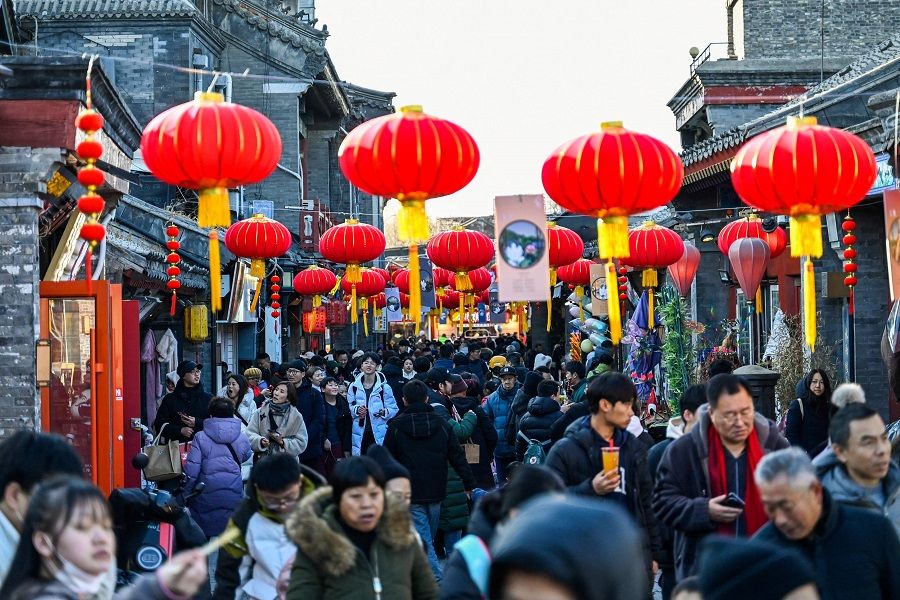
At the just concluded National People's Congress, China announced a host of new policies to support growth, boost foreign trade, attract foreign investment and facilitate the travelling of foreign nationals to China. The annual GDP growth target is set at around 5% this year. As the Chinese economy continues to grow at such a pace, China will bring more opportunities to countries in the region and the rest of the world.
It should be an open, inclusive, clean and beautiful world that enjoys lasting peace, universal security and common prosperity.
Inter-civilisational dialogue
Last but not least we need civilisations to engage, not to clash. We, the Chinese, advocate dialogues among civilisations. We should let inter-civilisational exchanges replace estrangement, mutual learning replace clashes, and coexistence replace feelings of superiority.
This view on civilisation perfectly echoes the Asian values of peace, cooperation, inclusiveness and integration. These values, also encapsulated in the "Five Principles of Peaceful Coexistence", the ASEAN way of consensus building, and policy strategies initiated by leaders of the region, have all helped build a friendly and harmonious neighbourhood, making Asia one of the most dynamic growth engines in the world and the most stable place in the world, and we are certainly proud of that.
With a sense of history and a keen understanding of the reality that all countries are closely interconnected, President Xi Jinping put forward the vision of building a human community with a shared future. This vision is about what kind of world we hope to build for the future. It should be an open, inclusive, clean and beautiful world that enjoys lasting peace, universal security and common prosperity.
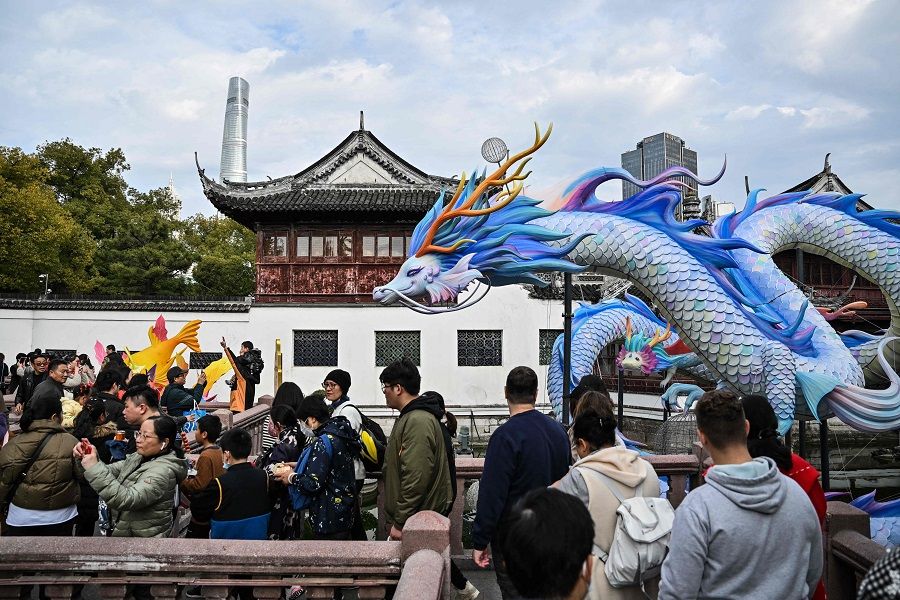
To build it, we have proposed the global development initiative, the global security initiative and the global civilisation initiative as the strategic pillars and the Belt and Road initiative as a practising platform for the human community of shared future. China is ready to work with countries in the region to turn this vision into a reality.
Colleagues, the theme song of the 19th Asian Games in Hangzhou goes: "We all are living in Asia. Together with you, we could dream. Together we love and share."
With this sense of togetherness, the international department of the Communist Party Central Committee reaches out to political parties and organisations worldwide for dialogues and understanding. With Singapore, my colleagues and I will do our best to follow through on the important consensus reached by our leaders, enhance interactions with people of all walks of life in Singapore and contribute to the growth of China-Singapore bilateral relations which is based on the comprehensiveness, on the all-round, on the future orientation and a strong and better future for Asia.
So it is a great pleasure to be here and I'm looking forward to continuing the discussion.
Thank you very much.
